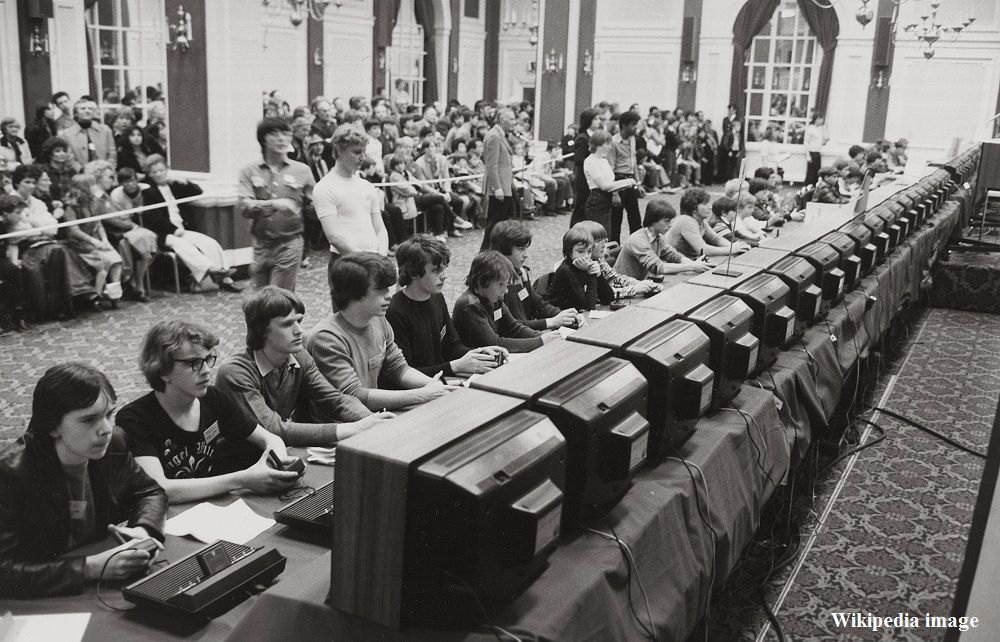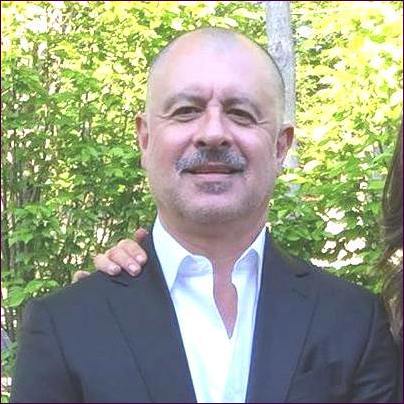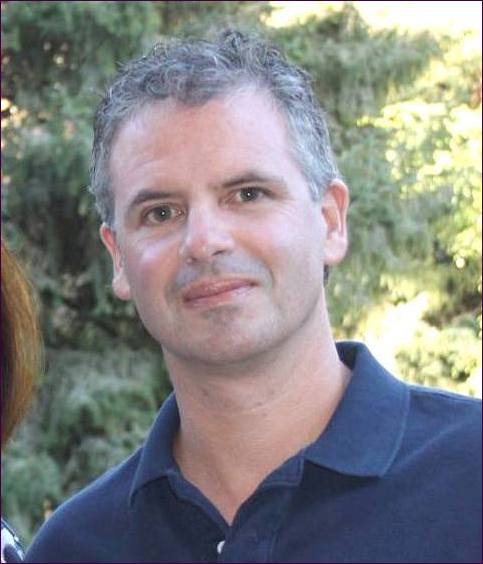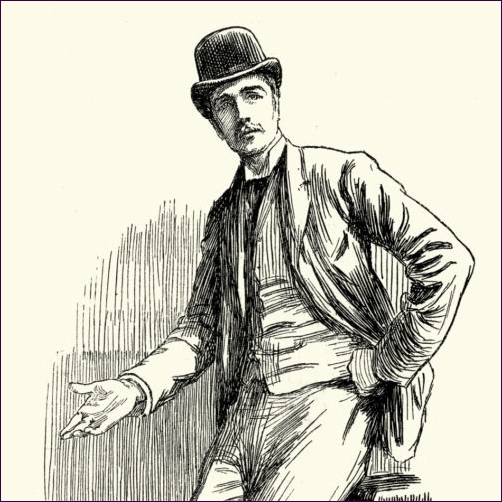|
Following news coverage of the charging of five precious metals traders and three banks in January, Commodities Futures Trading Commission and Department of Justice documents reveal a global criminal cabal of 16 traders operating in at least four major financial institutions between 2008 and 2015 to defraud COMEX gold and silver futures markets.
Of the many examples published, one reveals a UBS AG precious metals trader known as “The Legend,” spoofed sell orders to push down the price of gold futures on September 6, 2011, the day the gold market attained, and commenced a lengthy retreat, from its historic peak of US $1,923.70. Jury trials are sought for Cedric Chanu and James Vorley of Deutsche Bank, Edward Bases and John Pacilio of Merrill Lynch Pierce Fenner & Smith, and Andre Flotron of UBS AG. The traders are indicted with multiple offences including spoofing, manipulation and attempted manipulation of the precious metals futures market. FBI investigations found many of the traders had placed “thousands” of fake orders over “hundreds” of occasions during the relevant period. Some even more. Enforcement orders totalling $46.6 million were issued to Deutsche Bank, UBS AG and HSBC. Bank of America Merrill Lynch, parent company of Merrill Lynch Pierce Fenner & Smith, although implicated by the alleged actions of its subsidiaries traders, has not been sanctioned. The agencies said traders placing genuine orders to buy or sell and concurrently huge opposite spoof orders to present a false picture of supply or demand. Other traders were thus tricked into accepting the genuine orders at prices favourable to the manipulators. The spoof orders being placed far enough away from the current price to safeguard against their actual execution were then swiftly cancelled. The traders had the ability using spoofing to move prices up or down. By correlating details among multiple court documents and public sources it has been possible, with a high degree of certainty, to match the sample chats provided with the indicted traders, and banks they worked for. |
|
“THE LEGEND”Deutche Bank trader and Informant David Liew thought so highly of senior cabal member and co-conspirator, Trader F, according to Bloomberg’s disclosure of a sealed indictment, that he called him “The Legend.”
Trader F, as CFTC UBS Orders name, dominated the world of precious metals spoofing at UBS, appearing in nine of 12 manipulation samples listed in the CFTC UBS AG Orders, seven of which involve David Liew, Deutsche Bank informant. While the regulators describe four UBS traders as involved in the scandal, they currently seek a jury trial for only one. Veteran UBS precious metals specialist Andre Flotron’s term at the trading desk predates the bank itself. His LinkedIn timeline says he began trading gold and silver in 1982 with the Swiss Banking Corporation, Zurich. While still at the SBC precious metals desk, the corporation amalgamated with the Union Bank of Switzerland becoming UBS AG in 1999. In over 15 years at UBS, the 55 year old worked two stints each in Zurich and Stamford. In addition to trading, he held also managerial and training responsibilities until January, 2014, when placed on leave from Zurich following an internal investigation. |
An FBI affidavit describes how from July, 2008, Flotron mentored a new UBS employee in the art of spoofing. Trader#1 sat with Flotron for 2 months at his trading desk in Stamford, Connecticut “shadowing and observing” him with the aim of then transferring to the UBS precious metals desk in Singapore. The unnamed Trader#1 is now assisting the FBI investigation in return for immunity from prosecution.
In a teaching moment with a colleague about best practice for spoofing, on April 30, 2010, The Legend instructed:
Then contrasting the ease at which spoofing could be pulled off in years past:
As the FBI investigators found, a hallmark of Flotron’s operation became placing spoof orders in quantities such as 22, 33, 44, 55, or 99 contracts by “automated trading software which had the ability to … place, modify, and cancel multiple orders nearly simultaneously.”
In one example allegedly aiming to manipulate the market down to his favourable purchase orders on October 17, 2013, Flotron placed and then withdrew three large fake sell orders for futures worth $30.5 million in gold over a 2.5 minute period.
The largest of his fake orders was placed, a parcel of 99 lots worth $13 million in gold, immediately doubled the volume of sell orders compared to buy orders, while “never intending” it to be executed, the indictment says. The multi-million dollar spoof order was sufficient to immediately bring sellers down from $1319.30 to $1,319.20 filling several of the trader’s partially concealed 1-contract bids totalling $1.5 million gold value.
Sometimes the traders could move COMEX much more.
On January 28, 2009, Deutsche Bank’s Edward Bases allegedly shifted the gold futures price two dollars in one attack alone by placing and quickly cancelling a number of large bids in order to “help” his then colleague Cedric Chanu’s resting orders fill.
As a post-spoof chat shows, the technique and camaraderie bore a strong semblance to computer gaming.
i f..k the m[ar]k[e]t around a lot…not alot of people…had it figgied
out…thats [sic] why i love electronic trading.”
Besides helping each other achieve better than market prices, the Deutsche Bank traders helped UBS traders and traders from another global financial institution, Bank of America Merrill Lynch. One of the traders worked directly for two of the banks.
THE “TYRANT”Edward Bases was a metals tough guy. A 25-year career trading gold and silver in New York for the world’s largest banks, including a couple of years at Bear Sterns, gave him some trading bristle. The era of floor trading in commodities and stocks was coming to an end when Bases departed Deutsche Bank for Bank of America Merrill Lynch in June, 2010. There, as he reminisced with a UBS trader in 2015, he was already a formidable spoofer in the pits long before he clicked his way to wealth at Deutsche Bank. UBS Trader #2: “when you were a younger man where you also this angry?” Bases: “In a different way” “I was a tyrant” At the trading desk as on the floor, when extra muscle was required to move prices Bases strong-armed it. Paraphrasing the indictment: on January 28, 2009, his then colleague Cedric Chanu placed an iceberg order to sell 170 contracts with only one visible lot at $892.50. Five minutes later to help him out, Bases placed a spoof order to buy 250 contracts at $890.80, worth $22 million in gold, which he cancelled two seconds later. Straight away Bases placed a 240 lot spoof order to buy at various prices between $890.80 and $892.40, and all 170 of Chanu’s primary orders became filled. The spoofing methods and amounts could be tweaked depending which market participants were being targeted. |
|
THE TACTICIANHailing from the neighbouring affluent townships of New Caanan and Southport, Connecticut, 50 miles from New York, Bases, 56, and John Pacilio, 54, share an indictment of five charges in connection with Title 7 and 18 spoofing, manipulation, conspiring and fraud involving a commodity for future delivery. While trading precious metals at Bank of America Merrill Lynch, New York, John Pacilio is alleged to have spoofed solo and in tandem with his colleagues including Bases, and other banks between January, 2010, and April, 2011. Pacilio’s published trades include the largest of spoofing examples by the six traders. On February 4, 2011, Pacilio placed and cancelled within the space of less than a minute, spoof orders to sell the equivalent of $74.1 million worth of gold in futures contracts. His spoofing victims weren’t always human and rational as the trader advised seven others at BOAML including Bases on November 16, 2010. “guys the algos are really geared up in here. if you spoof this it really moves. thats where alot of this noise is coming from.” According to court filings, 20 seconds later Pacilio placed an iceberg Primary Order to sell 10 silver futures contracts at $25.48. After 29 seconds he then placed a succession of Opposite Orders totalling 250 lots to buy silver futures at between $25.455 and 25.47, which were cancelled as soon as his Primary Orders were filled. |
|
THE SPOKESMANThree years after commencing with Deutsche Bank precious metals desk London, Chanu was promoted to Director, Precious Metals Trading Singapore, in 2011, where called on, in between weekend recreations, to promote and represent the German bank in its Asian precious metals business. When interviewed by the Wall St Journal in September, 2012, Chanu, perhaps alluding to a growing disdain for spoofable forms of gold, noted “a dramatic increase in customers wanting to move out of paper, that is over-the-counter gold, and into physical.” The trader had a brief stint trading for the Swiss company Gunvor after leaving Deutsche Bank at the end of 2013. The conglomerate got out of precious metals trading however, according to Bloomberg in December 2014, when “executives decided to abandon the precious metals trading business partly because of difficulties in finding steady supplies of gold where the origin could be well documented.” Gunvor, it appears, couldn’t locate unspoofable gold bullion at the same price and volume at which gold futures and unallocated gold investments were trading. Part owned by Russian billionaire Gennady Timchenko until March, 2014, Gunvor ceased precious metals operations only one month after Deutsche Bank announced it was pulling out of precious metals trading in November, 2014. Cedric Chanu’s indictment details nine examples out of “hundreds” of precious metals manipulations while at Deutsche Bank between December, 2008, and June, 2013. A shared indictment for Chanu, 37, and his Deutsche Bank colleague James Vorley, 38, residents of the UAE and the UK respectively, was filed in an Illinois Court on January, 19. A Status Conference for the related civil case titled: CFTC vs Vorley and Chanu is scheduled for May, 7. |
|
“THE MASTER”London precious metals desk Deutsche Bank trader James Vorley cast himself in the theatre of chat as the quintessential English gent with a strong sense of fair play. He even told a trader at another firm in October, 2007, of his repulsion at a third firms manipulation of either futures or another precious metals instrument: “this spofi.ng [sic] is annoying / its illegal for a start…”its just not cricket.”
It was all a bad joke as FBI Special Agent Nevens found, seven months later from at least May, 2008, Vorley was running a “self enrichment scheme” to defraud the COMEX precious metals futures market and spoof training a new employee. His collaborators: Chanu and other Deutsche Bank traders, and those at another bank. According to the indictment, the FBI uncovered over “a thousand” instances of Vorley trading in a pattern consistent with spoofing, “placing over ten thousand Opposite Orders,” presumably withdrawn, and coordinating in spoofing with his Deutsche Bank colleague Cedric Chanu “over one hundred times” up to March, 2015. Included, an episode on March 16, 2011, when Vorley is recorded chatting to his colleague about “spoofing it up / ahem ahem” in relation to simultaneous platinum and gold futures trades. Deutsche Bank co-conspirator turned informant David Liew whom Vorley trained in spoofing, testifies that Vorley preferred the term “jam it” when referring to the illegal act. After one operation assisting Liew getting an order filled on November 3, 2010, Vorley “submitted and cancelled 29 buy orders at 10 contracts each”, and celebrated after: “was cladssic [sic] / jam it / woooooooooooo…bif [sic] it up.”
As a sign of gratitude, his understudy Liew responded glowingly: “tricks from the…master.” (Emphasis supplied.)
Not one to readily admit to wrongdoing, when queried in March, 2015, by Deutsche Bank compliance and employee relations, Vorley told them the term spoofing had been used “to describe more innocent and everyday occurrences.” He went on to defend the reason for his “inopportune use of the word spoof ” as “a bad example of market banter masquerading as sarcasm.”
A study by West Australian University Prof. Andrew Caminschi published September, 2013, observed gold and silver futures, and the GLD ETF, were “significantly impacted” by downward pricing anomalies from the London Gold and Silver PM Fixings leaking, prior to the publishing of the Fixing auction results. A previously unreported crack through which the Fix prices may have bled from London to Chicago and elsewhere can be found in one of the six futures trader’s connection to the London Gold and Silver Fixings. At the same time Deutsche Bank’s James Vorley is alleged by the CFTC and FBI to have manipulated COMEX precious metals futures, at least from May, 2008, to March, 2015, he was also a director of London Silver Market Fixing Limited and the London Gold Market Fixing Limited auctions. The London Gold and Silver Fixings set the world benchmark prices for the precious metals twice daily. Vorley’s tenure on the Fix lasted between September 2009 and May, 2014, for the Gold Fixing, and October, 2015, for the Silver Fixing. Three short weeks after Caminschci’s paper was published, UBS AG self-reported to global authorities that an internal investigation had uncovered “possible signs of manipulation, collusion and other market abusive conduct in foreign exchange trading” between the bank and other financial institutions. The Precious Metals Desk at UBS was a sub-unit of their Foreign Exchange Desk. As precious metals class action lawsuits flooded US courts in the following three years, Vorley’s employer Deutsche Bank, failing to find a buyer for its seat, dropped out of the London Gold and Silver Fixings, disbanded their precious metals trading unit, payed $98 million to settle class action lawsuits alleging collusion in the London Gold and Silver Fixings, and supplied antitrust plaintiffs with significant evidence against co-defendants. Short of an innocent sounding explanation as to how the precious metals pricing got so quickly from Fix-to-Futures, “ahem ahem,” it remains to be explored what Fixing information Vorley had prior to its publishing and what use, if any, he made of it in futures trading. |
|
THE INFORMANTAfter joining Deutsche Bank as a fresh graduate in 2009, David Liew was assigned, at completion of a short orientation and training period, to the Singapore Deutsche Bank precious metals desk. He was supervised and trained in manual spoofing by Vorley and Chanu, among others in Singapore and the UK, with whom he shared a “common electronic trading platform screen.” Here his trading could be monitored and he in turn could observe his mentor’s spoofing activities on his monitor. |
CFTC findings stressed that by allowing the traders to observe each other’s orders, Deutsche Bank facilitated their spoofing activities. The bank’s traders also communicated across the globe via electronic chat rooms and video teleconferencing.
The 31 year old who participated in, solo and coordinated spoofing with other traders “hundreds of times,” and stop loss manipulation coordinated with Trader F at UBS, apparently Andre Flotron, pleaded guilty in a Chicago court on June 1, 2017. Stop loss manipulations were also undertaken with others at Deutsche Bank in relation to information about a large metals trade for a bank customer.
The penalty handed down by the CFTC for Liew included a lifetime ban from commodity trading, while a monetary fine was not imposed “based upon his cooperation in a Commission investigation and related proceedings.” The DOJ prosecutes his criminal trial where he is expected to receive reduced sentencing in return for cooperation as a witness.
According to the sealed FBI affidavit cited by Bloomberg, after Liew was taught to spoof by Vorley and Chanu at Deutsche Bank he went on to train others in the “tricks.”
Since leaving the bank, Liew has continued to use his business and training skills, as he told the Court in June last year.
“I’ve set up my own businesses. So, I — a co-owner of a restaurant. I own a online toy store for children. And most recently I’ve also started teaching programming to kids.”
Presently up to four Deutsche Bank, two Merrill Lynch and UBS AG traders associated with the alleged manipulations are absent from indictments. Similarly an HSBC trader who allegedly spoofed alone remains at large.
The only US financial organisation implicated, Bank of America Merrill Lynch and its indicted traders, Edward Bases and John Pacilio are absent from CFTC Orders and Complaints.
The first public proceedings for the six traders is to begin in couple of weeks with Flotron’s jury selection scheduled for April, 6. His trial under Judge Jeffrey A. Meyer in Newhaven, Connecticut, is set to commence on April, 9.
“BEYOND SPOOFING”
Even with the first trial about to start, four years since the last of the allegations, the precious metals probes continue.
The Department of Justice Fraud and Antitrust Divisions opened their precious metals investigations into financial institutions in 2015, but the criminal antitrust probe was closed in January, 2016. The US Government agencies were not the only parties investigating banks precious metals trading though.
The banks, defending also civil antitrust precious metals class action lawsuits, received an extraordinary boost in the form of letter/s from the DOJ announcing closure of the investigations. Predictably the letter was used by defendants straight away in an attempt to convince the Courts to dismiss the lawsuits.
The Court: “You all love this letter, don’t you?”
Defense Attorney: “They are not that easy to get, your Honor.”
The Court: “That’s true. You should have gold bars around it.”
Raising the spectre that the DOJ had botched the antitrust probe, in October the Court denied Motions to Dismiss against all the banks except UBS, the only non-Fixing bank defendant. Challenging the Courts decision to dismiss civil complaints against UBS, only a short month later in November, the antitrust plaintiffs submitted damning new evidence.
Frank chat messages between traders in different banks, including UBS, about manipulating the Gold and Silver Fixes had been provided to plaintiffs by Deutsche Bank in their settlement cooperation materials. Surprisingly the DOJ had for 13 months sifted the same evidence without finding criminal evidence of antitrust conspiracy.
At the request of the DOJ the Court then placed the civil antitrust lawsuits on a partial stay of discovery for 12 months until December, 2017, doubtless to protect their ongoing precious metals fraud investigation.
To be fair to the DOJ, as Judge Valerie Caproni, former FBI General Counsel, had warned at the April, 2016, arguments, mistakes are not uncommon in government investigations. “Just because a government investigation is closed…doesn’t mean everybody is innocent.”
Another reason for delays in criminal prosecution of the cartel, concerns international treaties. Andre Flotron’s indictment and arrest on US soil in September last year was a stroke of luck for investigators and prosecutors who understand that extradition between countries with different laws can be problematic.
For example in May, 2015, the CFTC brought spoofing charges in gold and silver futures against UAE traders Heet Khara and Nasim Salim for manipulation between February and April, 2015. In 2016 a Federal New York court ordered the duo to pay $1.38 and $1.31 million in civil monetary penalties, but the pair are yet to be indicted in the US.
The FBI is yet to declare if the futures traders were also manipulating the underlying commodity such as the Gold and Silver Fix and spot markets, not to mention other products such as ETF’s.
At Andre Flotron’s pre-trial Status Conference December 4, 2017, DOJ Fraud Section Attorney Micheal Rinaldi hinted at a bigger picture:
“The larger conspiracy includes this much larger universe where Mr. Flotron is spoofing on a regular basis.”
The Swiss trader, was all but named by a Swiss regulator in 2014 who said they had, “seen clear attempts to manipulate fixes in the precious metals markets,” at the UBS precious metals desk in Zurich. FINMA went on to ban two UBS precious metals traders for one year, evidently Flotron, principal trader at the desk since 2010, and another uncharged.
Answering the judge’s question at the October 5, 2017, Status Conference about Flotron’s witness statement and the possibility of new evidence emerging, Assistant U.S. Attorney Jonathon Francis said:
“if we have communications, his chats, his e-mails, something like that, here’s no reason not to give them to them now. It’s when we get into the sort of the everything else. And I’ll tell you, the everything else goes beyond spoofing. Because this investigation dealt with trading more broadly and many banks.”
Tags: Bank of America,Deutsche Bank,FBI,gold price,LBMA,Merrill Lynch,newslettersent,UBS,Uncategorized




























